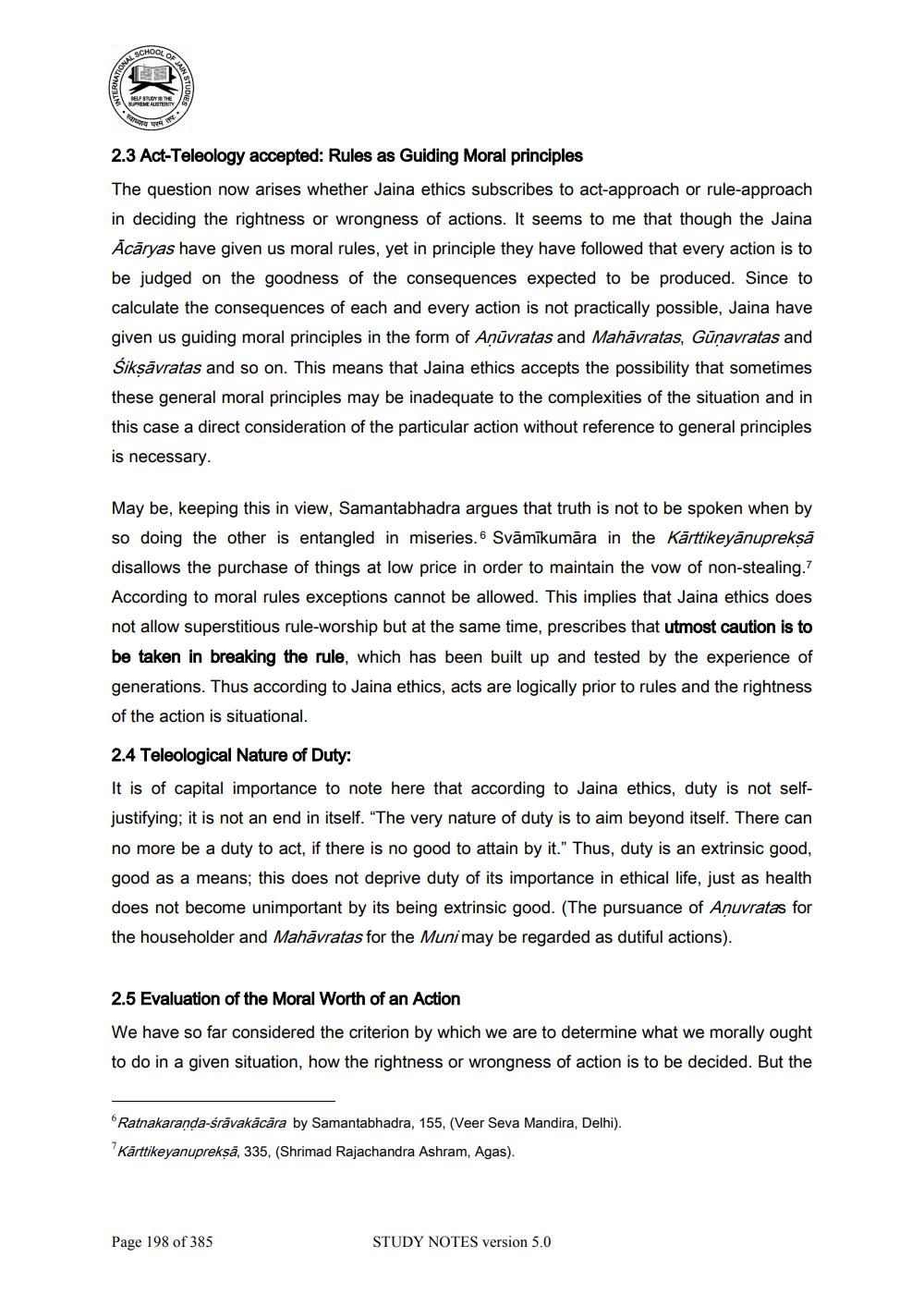________________
2.3 Act-Teleology accepted: Rules as Guiding Moral principles The question now arises whether Jaina ethics subscribes to act-approach or rule-approach in deciding the rightness or wrongness of actions. It seems to me that though the Jaina Ācāryas have given us moral rules, yet in principle they have followed that every action is to be judged on the goodness of the consequences expected to be produced. Since to calculate the consequences of each and every action is not practically possible, Jaina have given us guiding moral principles in the form of Anūvratas and Mahāvratas, Gūņavratas and Śikṣāvratas and so on. This means that Jaina ethics accepts the possibility that sometimes these general moral principles may be inadequate to the complexities of the situation and in this case a direct consideration of the particular action without reference to general principles is necessary.
May be, keeping this in view, Samantabhadra argues that truth is not to be spoken when by so doing the other is entangled in miseries. Svāmīkumāra in the Kārttikeyānupreksā disallows the purchase of things at low price in order to maintain the vow of non-stealing.? According to moral rules exceptions cannot be allowed. This implies that Jaina ethics does not allow superstitious rule-worship but at the same time, prescribes that utmost caution is to be taken in breaking the rule, which has been built up and tested by the experience of generations. Thus according to Jaina ethics, acts are logically prior to rules and the rightness of the action is situational.
2.4 Teleological Nature of Duty: It is of capital importance to note here that according to Jaina ethics, duty is not selfjustifying; it is not an end in itself. “The very nature of duty is to aim beyond itself. There can no more be a duty to act, if there is no good to attain by it." Thus, duty is an extrinsic good, good as a means; this does not deprive duty of its importance in ethical life, just as health does not become unimportant by its being extrinsic good. (The pursuance of Aņuvratas for the householder and Mahāvratas for the Muni may be regarded as dutiful actions).
2.5 Evaluation of the Moral Worth of an Action We have so far considered the criterion by which we are to determine what we morally ought to do in a given situation, how the rightness or wrongness of action is to be decided. But the
Ratnakaranda-śrāvakācāra by Samantabhadra, 155, (Veer Seva Mandira, Delhi). Kārttikeyanupreksä, 335, (Shrimad Rajachandra Ashram, Agas).
Page 198 of 385
STUDY NOTES version 5.0




